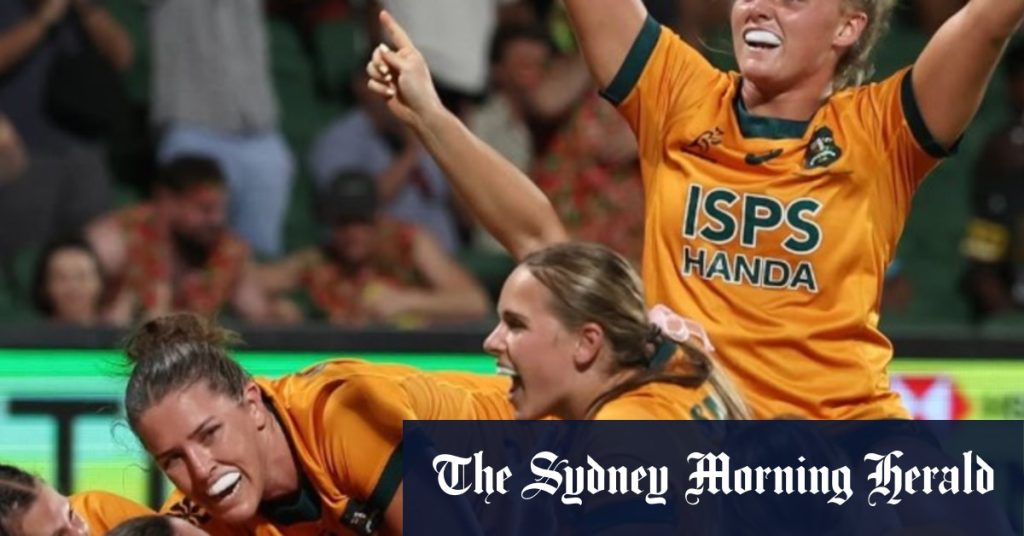Charlotte Caslick, a celebrated figure in Australian rugby sevens, has hailed her team’s recent victory at the Perth World Series event as a defining moment in her illustrious career. The thrilling 28-26 triumph over arch-rivals New Zealand in the final showcased not only the team’s resilience and tactical prowess but also the remarkable depth of talent within the Australian sevens program. This victory, their second in three World Series events, has propelled them to within striking distance of the top-ranked Kiwis, solidifying their position as a dominant force in women’s rugby sevens. The context of the win amplifies its significance, achieved despite the absence of key players and under the pressure of intense competition.
The Perth victory was achieved under challenging circumstances, with Australia missing two of their most formidable attacking threats: Maddison Levi, the reigning World Sevens Player of the Year, and Faith Nathan. Levi, who had been instrumental in Australia’s earlier successes at the tournament with nine tries, including two hat-tricks, suffered a broken thumb. Nathan was sidelined due to failing a Head Injury Assessment (HIA). Adding to the squad’s adversity, Madison Ashby and Bienne Terita were also unavailable for the tournament. These absences forced the team to rely on their less experienced players, providing a crucial test of the squad’s depth and adaptability.
Despite the significant personnel setbacks, the Australian team displayed remarkable resilience and composure. The younger players, given the opportunity to shine on the big stage, rose to the occasion, showcasing the strength of the Australian sevens development pathway. Nineteen-year-old Heidi Dennis exemplified this depth, scoring a try in the semi-final against Canada and then adding two more in the final against New Zealand, earning her the well-deserved Player of the Match award. Dennis’s performance highlighted the seamless integration of emerging talent into the team’s structure.
Caslick emphasized the importance of the team’s depth, praising the contributions of players like Dennis and Mackenzie Davies, who stepped up in the absence of their more experienced teammates. She noted their ability to maintain the team’s high performance standards, seamlessly filling the void left by the injured stars. This adaptability is a testament to the rigorous training and development programs within Australian rugby sevens, ensuring a consistent supply of talented players ready to perform at the highest level. The ability to maintain performance levels despite personnel changes reinforces the team’s collective strength and emphasizes the importance of a strong team culture.
The Perth victory carries significant weight for the Australian team, not just in terms of points on the World Series ladder, but also in terms of building confidence and demonstrating their resilience. Overcoming the adversity of missing key players served to strengthen the team’s resolve and showcase their ability to adapt to challenging situations. This experience will be invaluable as they progress through the World Series and prepare for future high-stakes competitions.
The victory in Perth serves as a resounding affirmation of the strength and depth of the Australian women’s rugby sevens program. The emergence of young talents like Heidi Dennis, coupled with the established leadership of players like Charlotte Caslick, underscores the program’s success in developing and nurturing a consistent stream of high-performing athletes. This depth is crucial for sustained success in the demanding world of international rugby sevens, ensuring the team remains competitive even in the face of injuries and other unforeseen challenges. The future of Australian women’s rugby sevens appears bright, with a promising blend of youth and experience poised to continue their dominance on the world stage.

